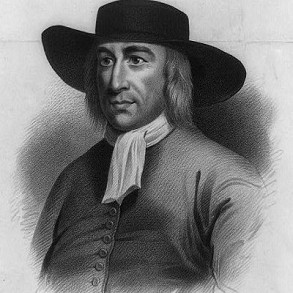Leadership Succession in the Early Quaker Movement
The Religious Society of Friends, more commonly known as Quakers, made a big impact in Britain and America, particularly in the 17th century. Unconventional, largely working class, and given to headline-grabbing methods of spreading the gospel, they carried unusual power – which they attributed to the “inner light” of God in each member. For a good overview of Quaker faith and practice, follow this link.
When it comes to leadership succession (the subject of this series of posts), we search in vain for any succession planning among the early Quakers. There may be two main reasons for this: their accent on mission and, linked with it, the persecutions and imprisonments that they faced. Potential successors to their pioneer and founder, George Fox, might not live to see the day, nor be available for training!
One scholar writes: ‘George Whitehead, by his age, his consistent character and eminent services, approached nearest to the position of successor to George Fox in Britain. His connection with Quakerism dated from its commencement in the north, and he was one of the “valiant sixty” sent out on mission to plant new ‘societies’ in 1654. At eighteen years of age he was the Quaker apostle of Norfolk, and through all the fiery trial of the first generation he bore his full share of labour and of suffering. His comrades succumbed to the rigours of imprisonment; but he survived to the venerable age of 87, and fulfilled 68 years of ministry. When they buried him in Bunhill Fields, in 1722-3, the Quakers lost the last link which connected them with the birth-time of their society.’
Sources vary on Fox’s successor in America, some suggesting John Woolman, others William Penn, but it is noteworthy that nowhere is a direct, appointed succession mentioned.
This would be entirely consistent with Fox’s insistence on the “inner light” – the Holy Spirit’s inspired guidance in all things. To structure and plan over much would be to overrule the Spirit by the human. While some might say that the Society of Friends eliminated the clergy, it is more accurate to say that it eliminated the laity. Every Friend (member) was ‘a saint in Christ Jesus’ and should be a minister of religion, a prophet, a mystic, an evangelist, a church administrator – and a potential apostle.
The Quakers have continued to this day, but in a very different form and spirit from the origins. There is still no succession planning, for the same reasons as above, but a web search throws up plenty of material on “Quakers in Transition”. This is telling. Having deliberately thrown out ‘apostolic’ succession and other things of “hireling ministry” (as they called it, see John 10:12-13), and having with time lost the inspirations and the prophetic anointing of their origins, it remains to be seen how they will handle issues of leadership transition and succession.


